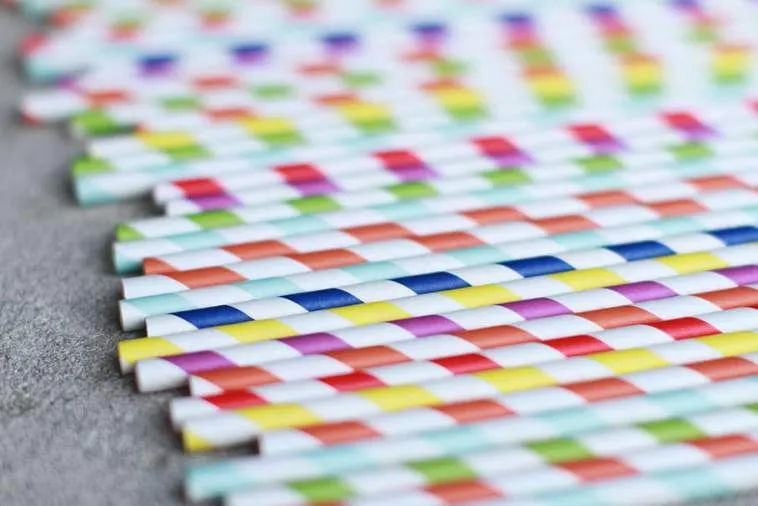(PJ Media) Those self-appointed guardians of the planet — the ones who don’t want you to have any fun — have decreed that we can’t use plastic straws because they’re devastating for the environment. These modern-day Puritans demand that businesses switch to alternatives, including paper, bamboo, and straws made out of materials that I can’t even figure out what they are.
The first time I experienced a paper straw was at Disney’s Animal Kingdom at Walt Disney World. It made sense that Animal Kingdom would experiment with them; after all, part of the mission of that park is to explore free-market solutions to environmental issues. But with every swig of my overpriced Coke, I wondered if the straw would make it through the drink. My whole family made mental notes to avoid straws at Animal Kingdom, but then Disney adopted paper straws all over the resorts and parks. I’ll just drink directly from the cup, thank you very much.
Guess what? Those nasty-a** paper straws may not be the best solution for ridding the world of plastic. A new study shows that these alternatives to plastic straws contain chemicals that are not only potentially toxic but can also linger in the body for a long time.
The journal “Food Additives & Contaminants” — that bastion of breezy, light reading — published a study out of Europe that examined the level of chemicals called poly- and perfluoroalkyl substances (PFAS) in straws. Manufacturers use PFAS to make items water-repellant or resistant.
“In the present study, we examined the PFAS concentrations in 39 different brands of straws, made from five materials (i.e. paper, bamboo, glass, stainless steel, and plastic) commercially available on the Belgian market,” states the abstract of the study.
Researchers discovered that 90% of the paper straw brands in the study contained significant amounts of PFAS. That contrasts with 80% of the bamboo straws, 75% of the plastic straws, and 40% of the glass straws that tested positive for PFAS. None of the steel straws measured significant levels of the chemical.
These ‘eco-friendly’ plant-based straws are not necessarily a more sustainable alternative to plastic straws, because they can be considered as an additional source of PFAS exposure in humans and the environment (e.g. after degradation in landfills or through incomplete incineration),” the researchers conclude. “The most sustainable alternative seems to be stainless-steel straws, which can be reused, do not contain PFAS, and can be fully recycled.”
Science X explains why PFAS are problematic in straws:

Yikes! The concentrations of PFAS in the straws were low, but the chemicals can stay in the body for years and build up with increased exposure. They’re also highly soluble in most of the straws.






